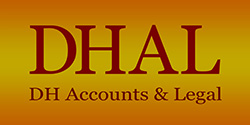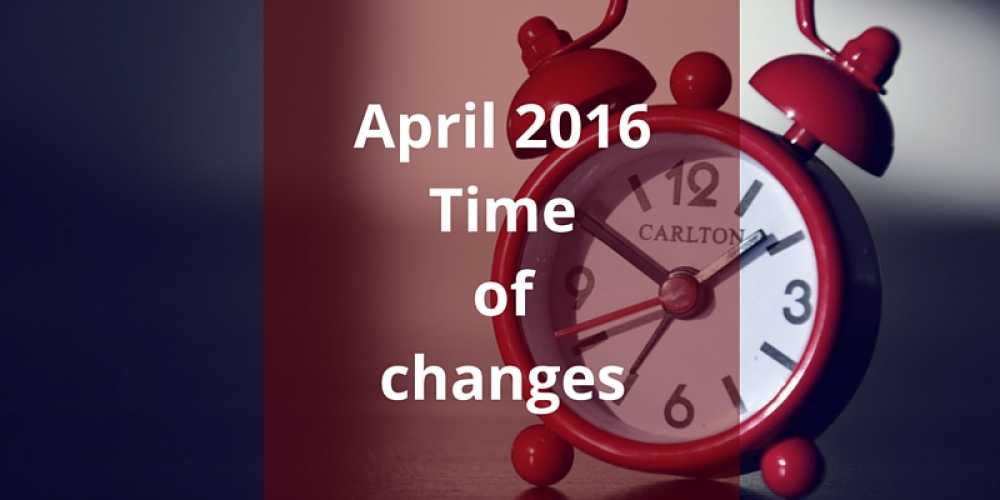The UK tax year begins on 6 April 2018 and the start of the new tax year in UK brings a raft of tax changes that you simply can’t afford to ignore as they all come into force in the coming months. 1. National Living Wage will increase The National Living Wage for those aged 25 and over will increase from £7.50 per hour to £7.83 per hour from April 2018. 2. Tax-free personal allowance will rise The personal allowance – the amount you earn before you start paying income tax – will rise from £11,500 to £11,850 from April 2018. 3. Income Tax bands of taxable income will rise […]
VAT is one of the things all businesses need to be aware of. It’s important, for example, to understand what the VAT threshold is and when you need to register for VAT. It’s also important to consider what benefits you might get from registering even if you are below the threshold. Also you need to know who can not register for VAT. What is VAT Value Added Tax – the amount of tax added to the value of goods or services you buy. All VAT registered businesses must charge VAT on the goods or services they provide in the UK. A business which is registered for VAT will charge VAT […]
This free (and highly detailed) book, written by Diana Hurta, is for people who run a business or planning to start own business in the United Kingdom as a self-employed. You will find answers to these questions: What does it mean to be self-employed. What are your responsibilities. When do you need to file your tax return. What and how much tax do you need to pay. What records do you need to keep. What expenses you can claim. How to keep tidy records. Also you will get GIFTS! Download our FREE ebook in PDF format by subscribing to our email list using the quick form below. […]
As a result of Automatic Enrolment, millions of people now have a workplace pension. Find out how this affects your business. Under the Pensions Act 2008, every employer in the UK must put certain staff into a pension scheme and contribute towards it. Employers will have to provide a workplace pension for eligible staff by 2018. This is called ‘automatic enrolment’. If you employ at least one person you are an employer and you have certain legal duties. It’s important that you understand what to do and by when, so you can meet your automatic enrolment duties. Staging date Find out when you’ll need to start enrolling people. This is […]
What you need to do to start a business in the UK, depends on your structure of business. Most businesses register as a sole trader, private limited company or partnership. Sole traders If you’re a sole trader, you run your own business as an individual and you’re self-employed. You can keep all your business profit after you’ve paid tax on it. You’re personally responsible for any losses your business makes. You must also follow certain rules on running and naming your business. Your responsibilities It’s simpler to start as a sole trader. You’ll need to: keep records of your business sales and expenses, send a Self Assessment tax return every […]
This free (and highly detailed) book, written by Diana Hurta, is for people who run a business or planning to start own business in the United Kingdom as a self-employed. You will find answers to these questions: What does it mean to be self-employed. What are your responsibilities. When do you need to file your tax return. What and how much tax do you need to pay. What records do you need to keep. What expenses you can claim. How to keep tidy records. Also you will get GIFTS! Download our FREE ebook in PDF format by subscribing to our email list using the quick form below. […]
The start of the new tax year in UK brings a raft of tax changes that you simply can’t afford to ignore as they all come into force in the coming months. We have provided some of 10 key changes and the proposed implementation dates. 1. The Personal Allowance will rise from April 2017 The Personal Allowance is the amount of income you can earn before you start paying income tax. It’s currently £11,000 this year, and will rise to £11,500 in 2017-18. The point at which you pay the higher rate of income tax will increase from £43,000 this year, to £45,000 in 2017-18. 2. The National Living Wage […]
National Insurance (NI) in the United Kingdom is a system of contributions paid by workers and employers to qualify for certain benefits. The national insurance scheme is administered by HM Revenue and Customs (HMRC). National insurance numbers A national insurance number (NINO) is a number unique to you which is used to keep track of your national insurance contributions and the benefits which you are paid. The number is made up of two letters, six numbers and one letter, for example, AB 123456 C. You must not let anyone else use your number. National Insurance Contributions classes and rates What National Insurance is for Class […]
The tax year in UK is from 6 April to 5 April the following year. Self Assessment is a system HM Revenue and Customs (HMRC) uses to collect Income Tax. Tax is usually deducted automatically from wages, pensions and savings. People and businesses with other income must report it in a tax return. Who must send a tax return You’ll need to send a tax return if, in the last tax year: you were self-employed even though the tax due may in fact be ‘nil’ you were a company director you got dividends from shares you had income from abroad that you needed to pay tax on you lived […]
1. The National Minimum Wage will be increased to £7.20 per hour for those 25 or over. 2. The Personal Tax Allowance, the amount you can earn before paying income tax, will be increased from £10,600 to £11,000. 3. The Higher Rate Threshold will increase from £42,385 to £43,000. 4. The Employment Allowance will increase from £2,000 to £3,000. 5. To make it cheaper to employ young people, from April 2016 employers will not have to pay National Insurance contributions (NICs) for all but the highest earning apprentices aged under 25. 6. The new State Pension will be increased £119.30 from to £155.65 per week. 7. The income rise disregard […]






